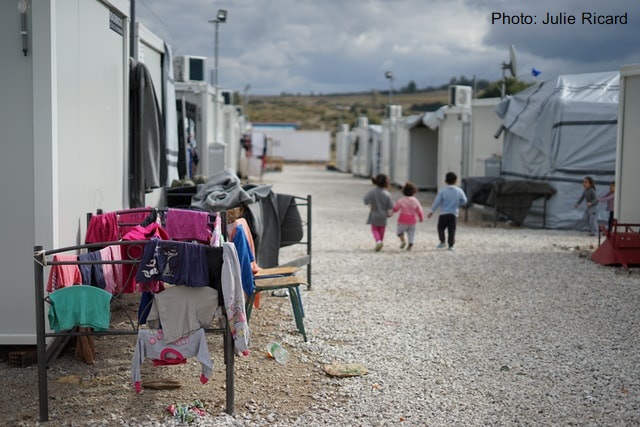Washington Kurdish Institute
By David L. Phillips November 15, 2021
Some 8,000 migrants are huddled on the border of Belarus and Poland. Many are Iraqi Kurds who seek economic opportunity and human rights in the European Union (EU). Instead of mitigating the population flow, Belarus President Alexander Lukashenko has weaponized migrants in retaliation for EU sanctions imposed on Belarus. The EU is ill-equipped to provide for the mass of humanity pressed against razor wire on the border between Belarus and Europe.
Poland is the epicenter of crisis. It has deployed 15,000 soldiers on its border to prevent refugees from entering the country. A growing number of refugees have perished from exposure, lack of medical care and short supplies of food and water.
A similar crisis unfolded in 2015 when more than a million refugees took flight from Turkey in the hope of crossing the Aegean, entering Greece, and making their way to Germany and Northern European countries where they hoped to find jobs and services. Many along the Balkan humanitarian corridor were fleeing violent conflict in Syria and Afghanistan.
Today, the Government of Iraq (GoI) is taking steps to address the migration crisis at its source. In August 2021, the GoI suspended flights between Baghdad and Minsk. It also suspended Belarussian visa processing and launched a public education campaign about the risks of irregular migration. Despite the GoI’s effort to deter the exodus of Iraqis, desperate asylum seekers found alternate routes through Beirut or Istanbul. The crisis is ongoing.
Why are migrants desperately fleeing Iraqi Kurdistan?
Cursory analysis suggests they are economic refugees. As such, they ineligible for protection under international humanitarian law.
Employees of the Kurdistan Regional Government (KRG) have not received salaries for months. Those who have been paid receive only a fraction of what’s due. The KRG’s economic woes are compounded by corruption, nepotism and the dispute with Baghdad over sharing oil revenues. As unemployment skyrockets, the GoI has downsized its social safety net, curtailing education and health care services and eliminating subsidies for commodities, such as bread and fuel. Electricity and water are increasingly in short supply.
Despite economic difficulties, Kurds are not economic refugees. They are primarily fleeing Iraq’s dysfunctional government. Iraq’s administrative and security problems are compounded by Iran’s influence. Iranian-backed militias target Iraqi Kurds, many of whom are secular and pro-Western.
An independence referendum for Kurdistan Region of Iraq was held on September 25, 2017. The vote for independence was overwhelming with 92.73 percent in favor. Instead of respecting their right to self-determination, the Trump administration ignored the democratic aspirations of Iraqi Kurds.
The Biden administration is no better. It remains wedded to the fiction of “one Iraq”, turning a blind eye to ethnic tensions between Arabs and Kurds and sectarian tensions between Shiites and Sunnis, including Iraqi Kurds.
Today’s migrant crisis on the border of Belarus and Europe is unfolding. It could get much worse, as many more migrants make their way to Minsk in the hope of entering Poland, Lithuania and Latvia. The GoI is arranging flights for migrants who choose to return, but very few are choosing voluntary repatriation.
Migrants must not be left out in the cold. Addressing human suffering must be the international community’s priority.
The UN needs access to these migrants so they can be interviewed, and their asylum claims processed. FRONTEX, the European Border and Coast Guard Agency, needs to take a leading role, alongside the International Organization of Migration (IOM). Together these agencies have the mandate and capacity to promote a humane and orderly migration.
The migration crisis on the border between Belarus and Poland is a manifestation of the broader problem, Iraq’s general dysfunction.
The US and other western countries are stakeholders in Iraq’s success. They should act to counter Iran’s activities, which undermine Iraq’s sovereignty in pursuit of national interests and regional hegemony. Upholding the interests of Iraqi Kurds will serve as a counterweight to Iran’s malign influence.
The problem is rooted in Iraq. So is the solution. Iraqi Kurds must feel they have a future as citizens of a united, federal and democratic Iraq. No one should blame Iraqi Kurdistan for pursuing independence if Iraq fails.
Mr. Phillips is Director of the Program on Human Rights and Peacebuilding at Columbia University. He is an Overseer of the International Rescue Committee and a board member of the Washington Kurdish Institute.
Disclaimer: The views, opinions, and positions expressed by authors and contributors do not necessary reflect those of the WKI.

